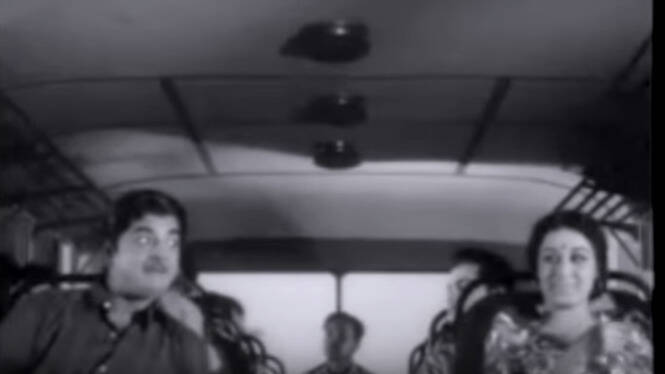
This article has been written by Shradha Jain, pursuing a Diploma in Intellectual Property, Media and Entertainment Laws from LawSikho.
Table of Contents
Introduction
Recently, a dormant controversy has been reignited among the states of Karnataka and Kerala regarding the rights over the trademark ‘KSRTC’. The reason for this controversy coming to life again was from the office of Kerala Transport Minister Antony Raju when he released a press statement stating that the Controller General of Patents Designs and Trademarks, which is part of the Ministry of Commerce and Industry has determined withinside the favor of Kerala giving it the exclusive right to use the abbreviation which was earlier recognizable by the residents of both the states. This comes after seven years of long-drawn battle between the parties and is believed that it will end the confusion among the passengers as to which is the real KSRTC. Kerala RTC MD and Transport Secretary, Biju Prabhakar, additionally said that this judgment determines their right over the acronym and that “a notice will be sent to Karnataka soon”.
However, these claims had been denied by Karnataka SRTC pointing out that the “reports are factually incorrect as we have not received any such notice or order from the Central Trade Mark Registry as claimed until today.” Furthermore, the appeals of regrading the mark in dispute were pending before the Intellectual Property Appellate Board (IPAB) which has been abolished since April, and the matters pending before it has been transferred to High Court and are since then pending before it. Additionally, Karnataka SRTC said that it will look for alternative legal options after they receive any official communication from the Registry. In this post, I shall analyze the controversy surrounding the KSRTC mark.
Background
The parties in the present dispute are two state-owned road transport services and hence it becomes a dispute between two-state. For two decades, the neighboring states of Kerala and Karnataka have been using the same acronym for their respective State Road Transport Corporations — KSRTC.
Karnataka State RTC was earlier known as Mysore Government Road Transport Department (MGRTD), commenced its operations in 1948, and after its reunification and integration it was named as Karnataka State RTC and started using the mark in 1973 and since 1974 have applied for numerous trademark registrations. Kerala’s state road transport was earlier known as Travancore State Transport Department and in 1965 it was re-established as the Kerala State Road Transport Corporation. After coming into existence in 1965 it had not filed for any trademark applications to register its brand name. The two RTCs have been operating services to each other’s states for decades. They use the same space for parking, operations and booking offices.
There has been the usage of the mark- KSRTC by both Karnataka and Kerala SRTCs for many decades now. However, Karnataka RTC registered the acronym and its logo Gandaberunda with the Controller General of Patents, Designs, and Trademarks. Upon registration of its mark and emblem in 2014, Karnataka issued notice to Kerala to forestall the use of the abbreviation as now it had sole rights over it. This move made Kerala SRTC spring into action and approach the Registry claiming that it should be granted the rights over the mark. After a seven-year legal battle for the trademark, Kerala has announced that the Trade Marks Registry’s final verdict gave it the right to use the abbreviation KSRTC, its emblem- the logo of two elephants and the name Anavandi, which means elephant vehicle. It is to be noted that the emblem of Gandaberunda still belongs to Karnataka and the mark of KSRTC has been granted to Kerala. Kerala RTC shall be the sole custodian of the trademarks as a result of their successful registration. KSRTC with the mark to now show the registration (R) will be displayed on all buses of the Kerala Corporation.
Upon a public search of the trademark in the Trademark Registry, it seems that the mark has been registered in favor of both the parties, in around 2017 for Karnataka and around 2019 for Kerala. It also seems quizzical that the registration of neither of these marks has been canceled. Also, the rectification petition against Karnataka’s use of the acronym appears to be pending at present. This implies that presently both the states can use the mark without any possible claim of infringement by the other. It needs to be seen how this will work with the latest decision of the Registry.
Registration of marks
Marks which can be without difficulty identifiable and are distinct/ unique from another person’s good or service are registrable. These marks must have a distinguishable identity that makes them distinct and distinguishable from a similar line of good or service. According to the TRIPS Agreement, of which India is a signatory, a Trademark can be registered if it consists of any sign or signs that make the goods or services of a business enterprise distinguishable from that of any other business enterprise. Section 9 and Section 11, of the Trademarks Act, 1999 offer grounds of refusal. Of the different types of marks that are registered, descriptive marks are non-registrable as they fail to differentiate among the products or services. So, the registrability of the KSRTC mark poses an interesting question. This is due to the fact KSRTC is simply an abbreviation of the services supplied through the organization of each party. As the Delhi High Court has held in Superon Schweisstechnik India Ltd. v. Modi Hitech India even the abbreviations of descriptive words are not prima facie entitled to protection. This was also iterated in the decision in S.B.L Ltd. v. Himalaya Drug Co “an abbreviation of a generic name which still conveys to the buyer the original generic connotation of the abbreviated name, is still, “generic”. However, if the mark has acquired secondary meaning by its usage over a period of time, then such a descriptive mark can also be registered. It appears that the corporations by providing the services had resulted in the abbreviation gaining a secondary meaning. Hence the mark becomes registrable and could have been registered in the name of either of the parties.
How did Kerala win?
The Supreme Court in the case of N.R. Dongre and Ors. v. Whirlpool Corporation and Ors., that a passing-off action can be brought by a prior user even against a registered holder of a trademark. In Titan Industries Limited v/s Registrar of TradeMarks and Anr, it has been held that “the well-settled proposition of law in Trade Mark law is that the prior user of a trademark has more valid rights in a mark than the registered proprietor”. From the above two cases, it can be concluded that trademark right is obtained by a party against a registered user if it proves that it was the prior user of the said mark. This was proved by Kerala with the help of visuals from the 1969 Malayalam film among other old photographs of buses, bus depots, and pages from memoirs written by former Transport Minister. In the movie Kannur Deluxe starring Prem Nazir and Sheela, he plays the role of the CID who had come to investigate a murder on the KSRT bus. The film was shot on a Kannur deluxe bus from Kannur to Thiruvananthapuram.
Concurrent use
As the mark is registrable through each state, the query that then arises is whether or not it may be used concurrently through each state. Here, Section 12 of the Trade Marks Act, 1999, needs to be taken into consideration. This provision permits the Registrar to furnish registration to the same marks to specific owners for equal or comparable offerings in case of “sincere concurrent use or of different unique circumstances”. Applying this proposition withinside the immediate scenario, if Karnataka, the later consumer, may be stated to be a sincere concurrent consumer or exhibit unique circumstances, it may be granted registration of the mark at the side of Kerala.
The factors to be considered while determining honest concurrent use were summarized by the Bombay High Court in the case of Kores (India) Limited v Khoday Eshwarsa and Son, they are:
- The honesty of the use;
- Quantum of use- duration, area and volume and trade and to goods in question;
- Degree of confusion;
- Whether the confusion has been proved;
- Relative inconvenience to parties and the public if the applicant’s mark is registered.
It can be that the usage of the mark has been honest by Karnataka. The abbreviation of its service is in line with the practice followed by other states’ RTC like RSRTC or UPSRTC. The acronym has been used for several decades now by both the states for interstate and intrastate transportation. There has been a minimum degree of confusion between the passengers traveling by these buses and the routes overlapping as also low in number, hence there is not much scope for confusion. Since the marks have been registered by both the RTC’s there has been no instance of inconvenience by such concurrent registration and usage. On the other hand, if the mark is given to sole use of one state it might end up creating inconvenience for the public as can be highlighted by the article published by Times of India- Bengaluru: Netizens fume over Karnataka losing KSRTC tag to Kerala.
Conclusion
From the above analysis, it can be said that there is a strong case of concurrent usage of the mark KSRTC. A tussle between the two states regarding the mark is surprising and the gains from such an activity seem to be small and unclear. The states should continue their earlier practice of simultaneous use and carry on their operations amicably.
References
- https://spicyip.com/2021/06/kerala-and-karnataka-tussle-over-the-ksrtc-mark-registrability-concurrent-use-and-infringement.html.
- https://starofmysore.com/karnataka-seeks-new-name-as-brand-ksrtc-becomes-keralas/.
- https://indianexpress.com/article/explained/how-kerala-won-battle-for-ksrtc-trademark-7344760/.
- https://selvams.com/kb/in/trademarks/marks-not-registrable/.
- https://www.jmaip.com/articles.html.
Students of Lawsikho courses regularly produce writing assignments and work on practical exercises as a part of their coursework and develop themselves in real-life practical skills.
LawSikho has created a telegram group for exchanging legal knowledge, referrals, and various opportunities. You can click on this link and join:
 Serato DJ Crack 2025Serato DJ PRO Crack
Serato DJ Crack 2025Serato DJ PRO Crack









 Allow notifications
Allow notifications


